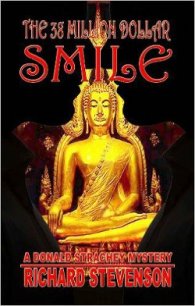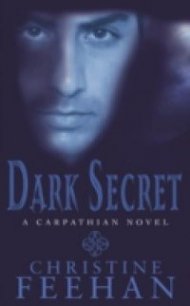Congo - Crichton Michael (книги регистрация онлайн бесплатно .TXT) 📗
Kruger was the bwana mukubwa, hired to take the expedition into the Congo. He had led expeditions before: oil companies, map-survey parties, timber-mining teams, and geological parties like this one. Companies sending teams into the field wanted someone who knew local customs and local dialects well enough to handle the porters and arrange the travel. Kruger was well suited for this job; he spoke Kiswahili as well as Bantu and a little Bagindi, and he had been to the Congo many times, although never to Virunga.
Kruger could not imagine why American geologists would want to go to the Virunga region of Zaire, in the northeast corner of the Congo rain forest. Zaire was the richest country in black Africa, in minerals-the world’s largest producer of cobalt and industrial diamonds, the seventh largest producer of copper. In addition there were major deposits of gold, tin, zinc, tungsten and uranium. But most of the minerals were found in Shaba and Kasai, not in Virunga.
Kruger knew better than to ask why the Americans wanted to go to Virunga, and in any case he had his answer soon enough. Once the expedition passed Lake Kivu and entered the rain forest, the geologists began scouring rivers and streambeds. Searching placer deposits meant that they were looking for gold, or diamonds. It turned out to be diamonds.
But not just any diamonds. The geologists were after what they called Type IIb diamonds. Each new sample was immediately submitted to an electrical test. The resulting conversations were beyond Kruger-talk of dielectric gaps, lattice ions, resistively. But he gathered that it was the electrical properties of the diamonds that mattered. Certainly the samples were useless as gemstones. Kruger had examined several, and they were all blue from impurities.
For ten days, the expedition had been tracing back placer deposits. This was standard procedure: if you found gold or diamonds in streambeds, you moved upstream toward the presumed erosive source of the minerals. The expedition had moved to higher ground along the western slopes of the Virgunga volcanic chain. It was all going routinely until one day around noon when the porters flatly refused to proceed further.
This part of Virunga, they said, was called kanyamagufa,
which meant “the place of bones.” The porters insisted that any men foolish enough to go further would have their bones broken, particularly their skulls. They kept touching their cheekbones, and repeating that their skulls would be crushed.
The porters were Bantu-speaking Arawanis from the nearest large town, Kisangani. Like most town-dwelling natives, they had all sorts of superstitions about the Congo jungle. Kruger called for the headman.
“What tribes are here?” Kruger asked, pointing to the jungle ahead.
“No tribes,” the headman said.
“No tribes at all? Not even Bambuti?” he asked, referring to the nearest group of pygmies.
“No men come here,” the headman said. “This is kanyamagufa.”
“Then what crushes the skulls?”
“Dawa,” the headman said ominously, using the Bantu term for magical forces. “Strong dawa here. Men stay away.”
Kruger sighed. Like many white men, he was thoroughly sick of hearing about dawa. Dawa was everywhere, in plants and rocks and storms and enemies of all kinds. But the belief in dawa was prevalent throughout much of Africa and strongly held in the Congo.
Kruger had been obliged to waste the rest of the day in tedious negotiation. In the end, he doubled their wages and promised them firearms when they returned to Kisangani, and they agreed to continue on. Kruger considered the incident an irritating native ploy. Porters could generally be counted on to invoke some local superstition to increase their wages, once an expedition was deep enough into the field to be dependent on them. He had budgeted for this eventuality and, having agreed to their demands, he thought no more about it.
Even when they came upon several areas littered with shattered fragments of bone-which the porters found frightening-Kruger was not concerned. Upon examination, he found the bones were not human but rather the small delicate bones of colobus monkeys, the beautiful shaggy black-and-
white creatures that lived in the trees overhead. It was true that there were a lot of bones, and Kruger had no idea why they should be shattered, but he had been in Africa a long time, and he had seen many inexplicable things.
Nor was he any more impressed with the overgrown fragments of stone that suggested a city had once stood in this area. Kruger had come upon unexplored ruins before, too. In Zimbabwe, in Broken Hill, in Maniliwi, there were the remains of cities and temples that no twentieth-century scientist had ever seen and studied.
He camped the first night near the ruins.
The porters were panic-stricken, insisting that the evil forces would attack them during the night. Their fear was caught by the American geologists; to pacify them, Kruger had posted two guards that night, himself and the most trustworthy porter, Misulu. Kruger thought it was all a lot of rot, but it had seemed the politic thing to do.
And just as he expected, the night had passed quietly. Around midnight there had been some movement in the bush, and some low wheezing sounds, which he took to be a leopard. Big cats often had respiratory trouble, particularly in the jungle. Otherwise it was quiet, and now it was dawn: the night was over.
A soft beeping sound drew his attention. Misulu heard it too, and glanced questioningly at Kruger. On the transmitting equipment, a red light blinked. Kruger got up and crossed the campsite to the equipment. He knew how to operate it; the Americans had insisted that he learn, as an “emergency procedure.” He crouched over the black transmitter box with its rectangular green LED.
He pressed buttons, and the screen printed TX HX, meaning a transmission from Houston. He pressed the response code, and the screen printed CAM LO K. That meant that Houston was asking for video camera transmission. He glanced over at the camera on its tripod and saw that the red light on the case had blinked on. He pressed the carrier button and the screen printed SATLOK, which meant that a satellite transmission was being Locked in. There would now be a six-minute delay, the time required to lock the satellite-bounced signal.
He’d better go wake Driscoll, the head geologist, he thought. Driscoll would need a few minutes before the transmission came through. Kruger found it amusing the way the Americans always put on a fresh shirt and combed their hair before stepping in front of the camera. Just like television reporters.
Overhead, the colobus monkeys shrieked and screamed in the trees, shaking the branches. Kruger glanced upward, wondering what had set them going. But it was normal for colobus monkeys to fight in the morning.
Something struck him lightly in the chest. At first he thought it was an insect but, glancing down at his khaki shirt, he saw a spot of red, and a fleshy bit of red fruit rolled down his shirt to the muddy ground. The damned monkeys were throwing berries. He bent over to pick it up. And then he realized that it was not a piece of fruit at all. It was a human eyeball, crushed and slippery in his fingers, pinkish white with a shred of white optic nerve still attached at the back.
He swung his gun around and looked over to where Misulu was sitting on the rock. Misulu was not there.
Kruger moved across the campsite. Overhead, the colobus monkeys fell silent. He heard his boots squish in the mud as he moved past the tents of sleeping men. And then he heard the wheezing sound again. It was an odd, soft sound, carried on the swirling morning mist. Kruger wondered if he had been mistaken, if it was really a leopard.
And he saw Misulu. Misulu lay on his back, in a kind of halo of blood. His skull had been crushed from the sides, the facial bones shattered, the face narrowed and elongated, the mouth open in an obscene yawn, the one remaining eye wide and bulging. The other eye had exploded outward with the force of the impact.


![[Magazine 1968-012] - The Million Monsters Affair - Davis Robert Hart (серия книг .txt) 📗](/uploads/posts/books/56864/56864.jpg)

